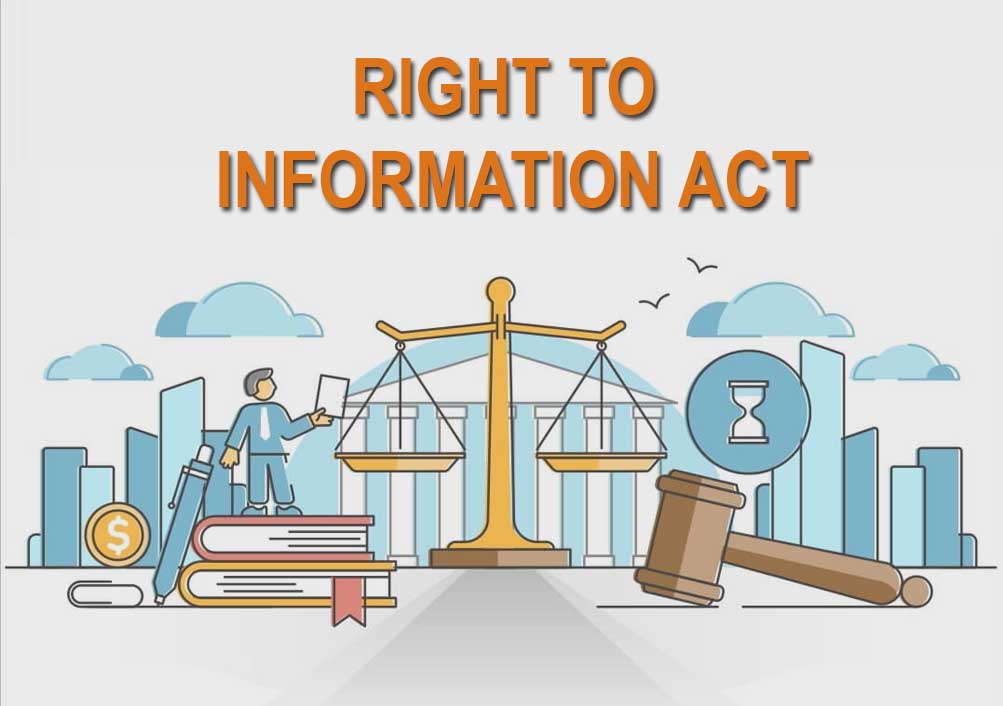In News:Scuttling people’s right to information
1.The Right to Information Act, while intended to promote transparency and accountability, has faced numerous challenges in its implementation. Discuss the ethical dilemmas arising from the interplay of transparency, accountability, and individual privacy in the context of the RTI Act. How can these dilemmas be addressed to ensure the effective functioning of the Act while upholding ethical principles?
The Right to Information (RTI) Act, while a crucial tool for promoting transparency and accountability in governance, often faces ethical dilemmas that arise from the interplay of these principles with individual privacy.
Ethical dilemmas in the RTI Act
- Transparency vs. individual privacy:
The RTI Act promotes transparency but can conflict with individual privacy rights. Requests for personal data, especially in sensitive areas like healthcare, risk breaching confidentiality. While the Act allows for denial of information that violates privacy, the criteria for such denials can be ambiguous. - Accountability vs. misuse of information:
The Act aims to hold public authorities accountable, yet it can be misused for harassment or personal vendettas. This misuse diverts resources and creates a hostile environment for officials, complicating the distinction between legitimate requests and malicious ones. - National security vs. transparency:
In certain cases, the disclosure of information through the RTI Act could compromise national security. Balancing the need for transparency with the imperative to protect national interests is a complex ethical challenge. - Political pressure and ethical decision-making:
Information commissioners often face political pressure that can compromise their independence, leading to decisions favouring political interests over public interest. Navigating these influences while maintaining ethical standards is a significant challenge.
Addressing ethical dilemmas
- Clear guidelines and training
● Establishing clear guidelines and training programs for commissioners on ethical decision-making can help balance transparency and privacy. - Strengthening oversight mechanisms
● Independent review bodies could enhance accountability and ensure ethical decision-making. - Public awareness campaigns
● Increasing public awareness about responsible RTI usage can reduce misuse. - Legislative revisions
● Revisiting provisions of the RTI Act may clarify privacy exemptions and strengthen penalties for misuse, reinforcing ethical conduct among all stakeholders.
Upholding ethical principles while ensuring the effective functioning of the RTI Act will ultimately enhance its role as a tool for democratic governance in India.
PYQ
- There is a view that the official secrets act is an obstacle to the implementation of the Rights to Information act. Do you agree with the view? Discuss 2019
- “The Right to Information Act is not all about citizens’ empowerment alone, it essentially redefines the concept of accountability. Discuss. 2018
- Some recent developments such as introduction of RTI Act, media and judicial activism, etc., are proving helpful in bringing about greater transparency and accountability in the functioning of the government. However, it is also being observed that at times the mechanisms are misused. Another negative effect is that the officers are now afraid to take prompt decisions. Analyze this situation in detail and suggest how this dichotomy can be resolved. Suggest how these negative impacts can be minimized. 2015
- Today we find that in spite of various measures like prescribing codes of conduct, setting up vigilance cells/commissions, RTI, active media and strengthening of legal mechanisms, corrupt practices are not coming under control. A) Evaluate the effectiveness of these measures with justifications. B) Suggest more effective strategies to tackle this menace.2015
Source:
https://www.thehindu.com/opinion/op-ed/scuttling-peoples-right-to-information/article68748541.ece

